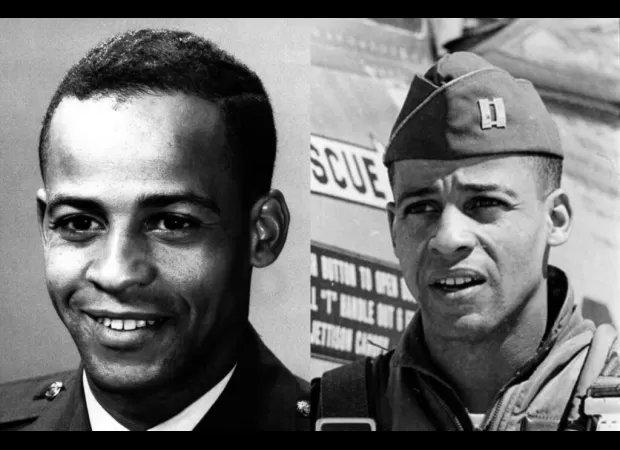New doc highlights first Black NASA astronaut in Space Race.
A new documentary, "The Space Race," shares his story.

Ed Dwight, a trailblazing figure in the world of space exploration, is finally getting the recognition he deserves in a new National Geographic documentary, "The Space Race." This incredible film sheds light on Dwight's remarkable journey as the first Black astronaut in NASA and the challenges he faced along the way.
Growing up in Kansas during the 1930s, Dwight's love for aviation was evident from a young age. He found a sense of freedom in the sky, a feeling that was rare for a Black person during that time. "My first flight was the most exhilarating thing in the world," recalls the now 90-year-old Dwight in an interview with NBC News. "There were no streets or stop signs up there. You were free as a bird."
Despite his passion for flying, Dwight's dream of becoming an astronaut seemed unattainable until he learned about the opportunities for Black pilots in the Air Force during the Korean War. He joined the test pilot program at Edwards Air Force base, with the support of President John F. Kennedy. However, after Kennedy's assassination, discrimination within the program intensified, crushing Dwight's hopes of becoming the first Black astronaut. "They were all instructed to give me the cold shoulder," Dwight shares. "Yeager [a senior air force officer] even announced it in an auditorium full of students and staff, saying that Washington was trying to force this N-word down their throats."
Dwight's dismissal from the program left NASA's diversity efforts in a state of uncertainty. It wasn't until 1983, 20 years after Dwight left NASA, that Guion Bluford became the first Black man to reach space. "The Space Race" not only highlights the achievements of those who made it to the stars, but also pioneers like Dwight, who faced discrimination and paved the way for future Black astronauts.
Bernard Harris, one of the first Black astronauts, reflects on what Dwight's presence in space would have meant for humanity and the fight for civil rights. "Space allows us to realize the hope that's within all of us as human beings," Harris explains. "To see a Black man in space during that time would have changed things."
Although Dwight's journey was different from that of his successors, he remains a crucial figure in Black history for his determination to pursue his dreams despite the obstacles he faced. "Ed is so important for everyone who's followed after him, to recognize and embrace the shoulders they stand on," says Lisa Cortés, co-director of "The Space Race." "There's the history we know and the history that's not had the opportunity to be highlighted."
"The Space Race" will premiere on National Geographic on February 12, with streaming available the following day on Disney+ and Hulu. This documentary serves as a reminder of the importance of diversity and representation in the world of space exploration, and honors the legacy of Ed Dwight and others who played a significant role in NASA's history.






